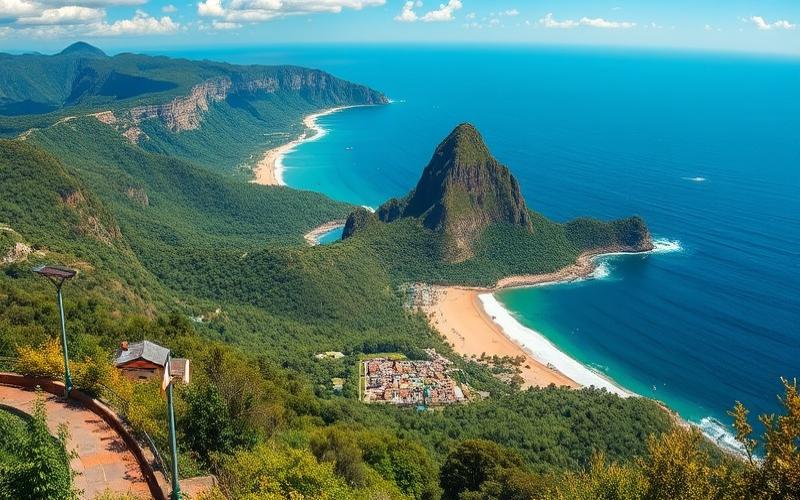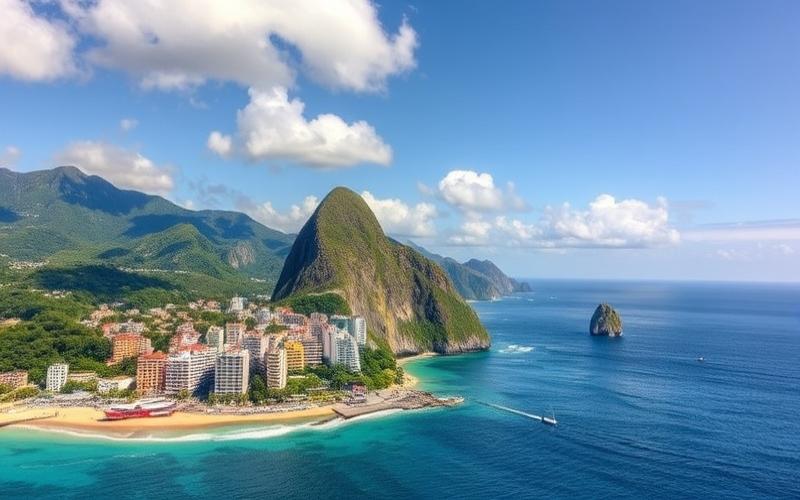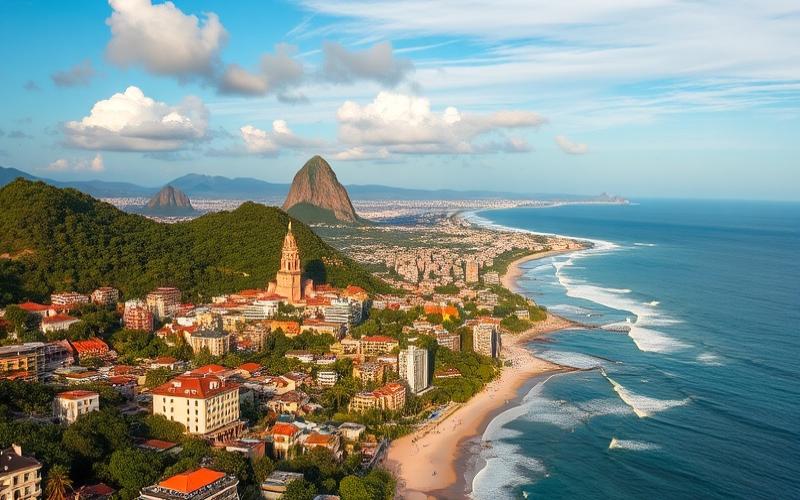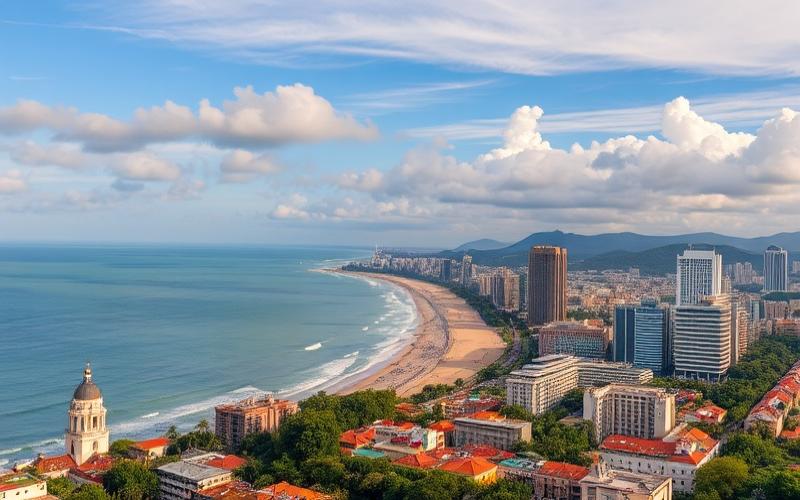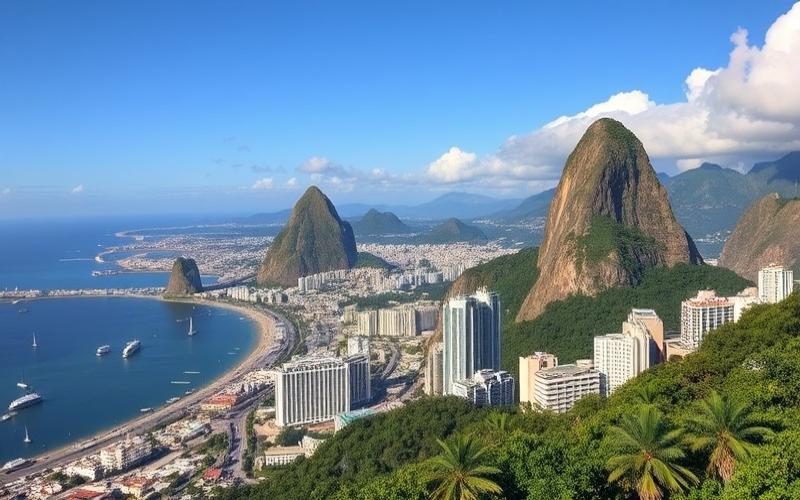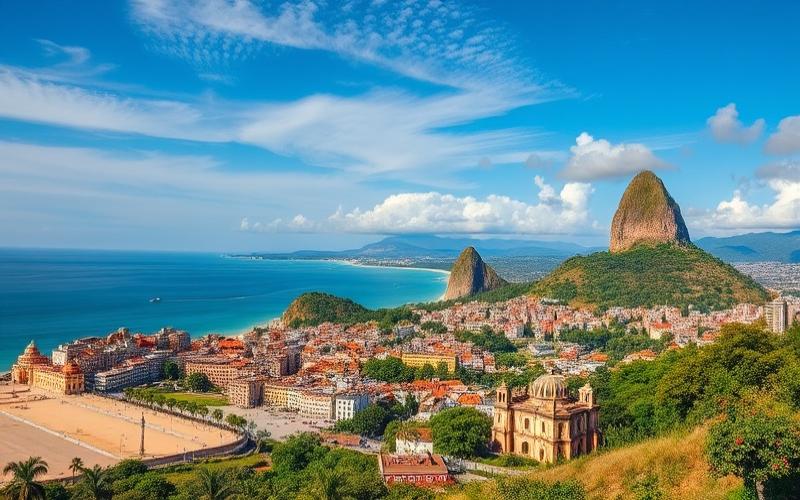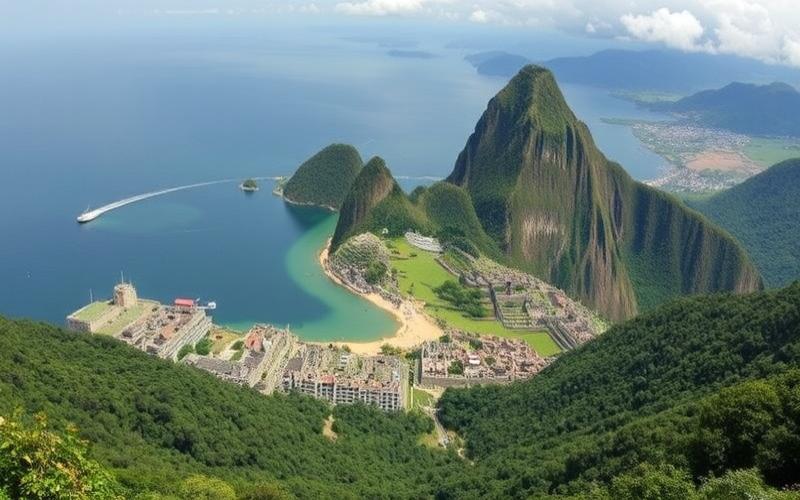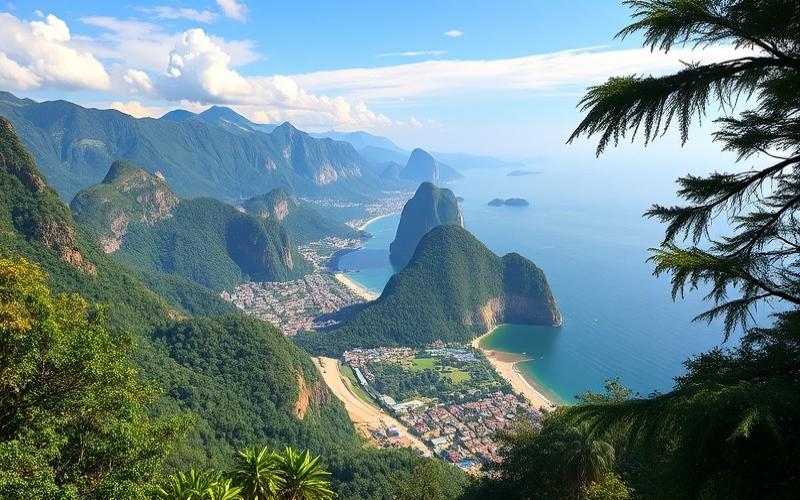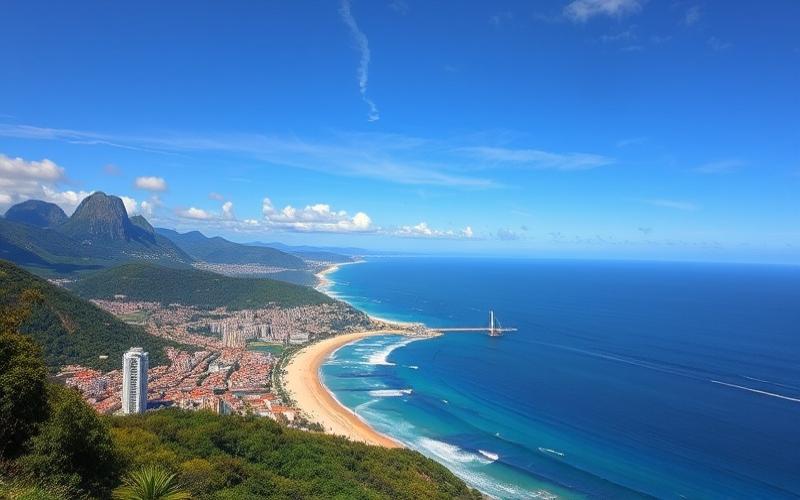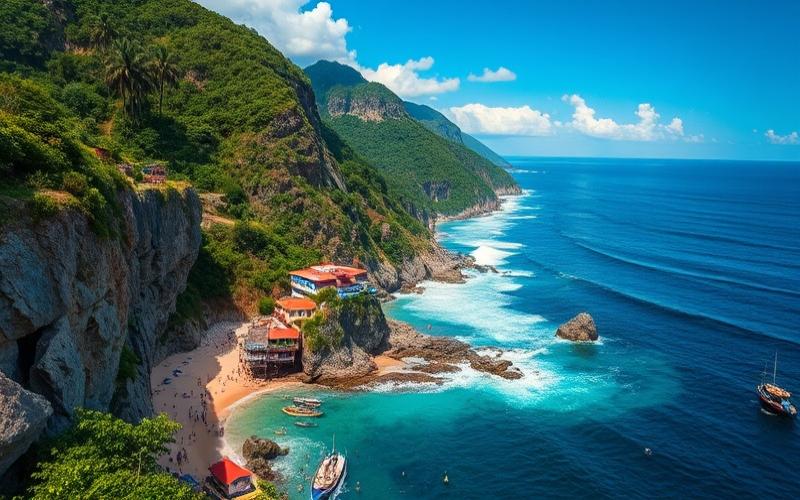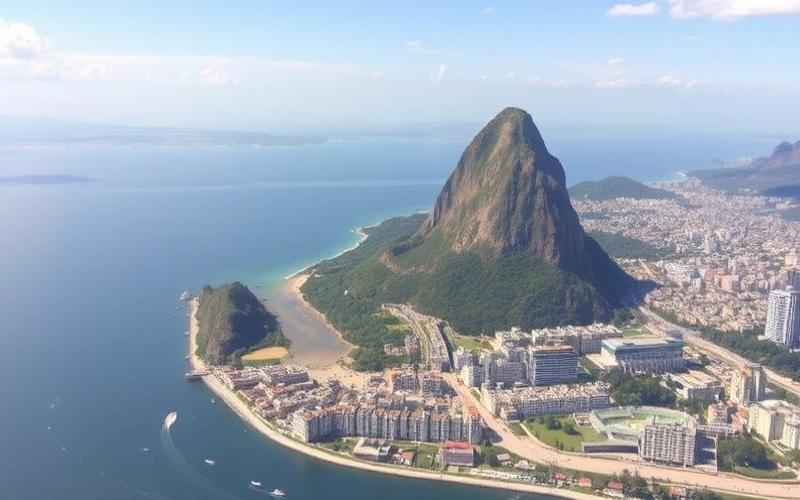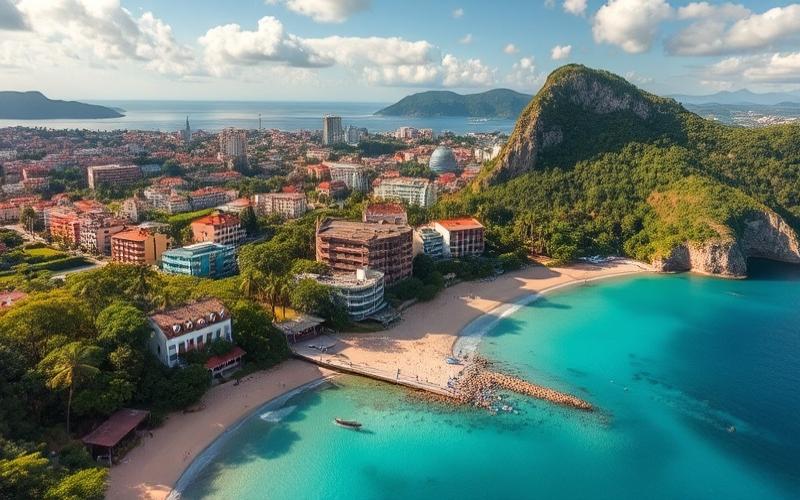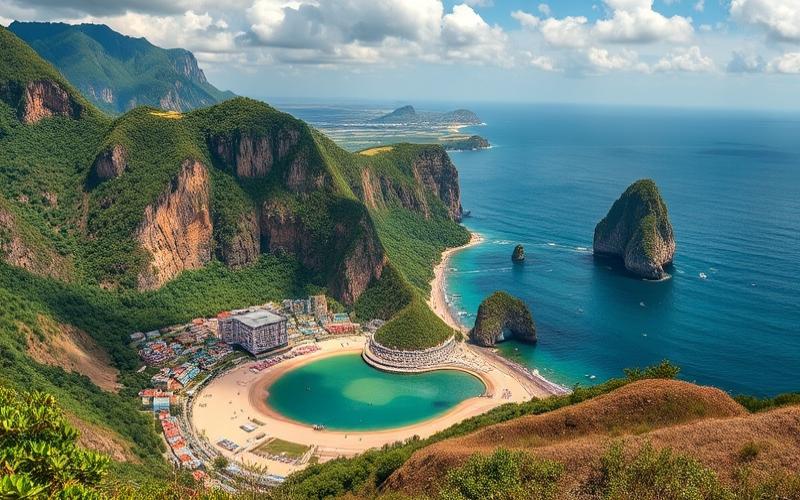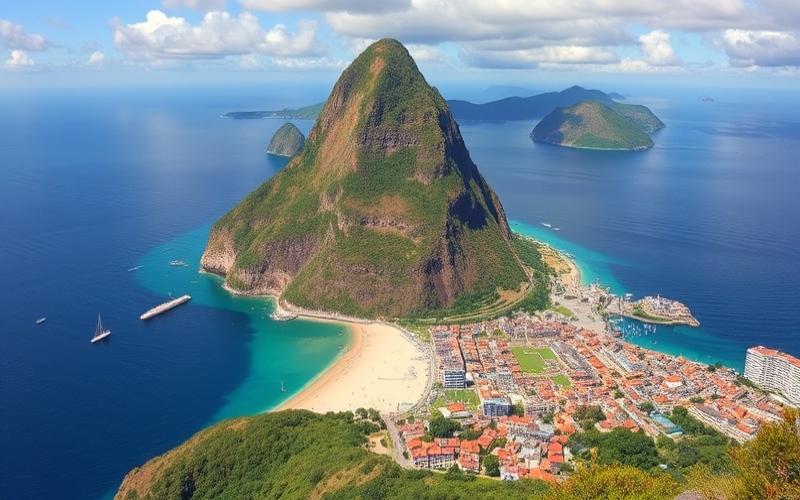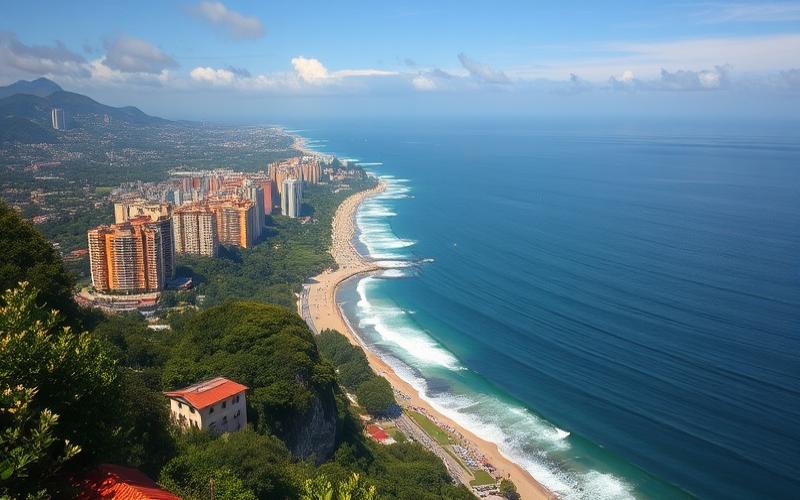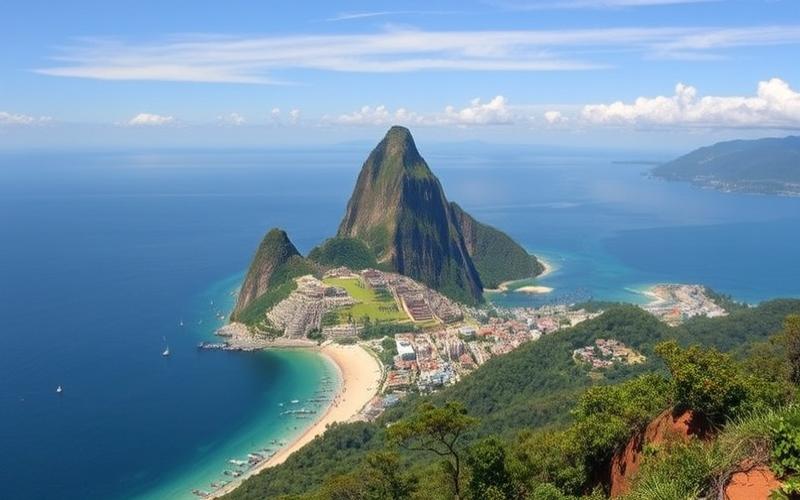
 Published on and written by Cyril Jarnias
Published on and written by Cyril Jarnias
Finding housing in Brazil can be both a stimulating and complex experience, due to the country’s vastness and cultural diversity. Whether you’re traveling for work, study, or personal discovery, it’s essential to understand the local market well to avoid common pitfalls.
From choosing the neighborhood, where it’s important to consider proximity to transportation and safety, to understanding rental contracts, each step requires careful attention.
In this article, we’ll reveal practical tips and essential tricks to not only find the ideal housing but also to experience an authentic immersion in this captivating country.
Finding Housing in Brazil: The Best Tips and Tricks
Finding housing in Brazil requires good knowledge of available options, market differences based on rental duration, administrative procedures, and neighborhood characteristics in major cities.
Main Online Platforms and Specialized Real Estate Agencies
| Platform/Agency | Housing Type | Special Features |
|---|---|---|
| ZAP | Short/long term | Widely used, vast selection |
| Imovelweb | Short/long term | Portuguese interface |
| VivaReal | Long term | Large database |
| QuintoAndar | Long term | Simplified procedures |
| Viva Local | Short/long term | Varied local offerings |
| Airbnb | Short term | Ideal for temporary arrival |
| Casamundo | Short term | Vacation rentals |
| Cozycozy | Short term | Multi-platform comparator |
| Local Real Estate Agencies | Short/long term | Personalized assistance, fees to expect |
Tip: Building concierges (porteiros) and classified ads in local newspapers (e.g., Folha de São Paulo, O Globo) are also sources of unique offers.
Short-Term vs Long-Term Rental
| Criterion | Short Term | Long Term |
|---|---|---|
| Platforms | Airbnb, Casamundo, Cozycozy | ZAP, Imovelweb, QuintoAndar |
| Suitable Profile | Tourists, new arrivals | Expatriates, students, families |
| Flexibility | Very flexible, quick booking | Longer commitments, notice period |
| Furniture | Generally furnished | Furnished or unfurnished |
| Cost | More expensive per night | Cheaper per month |
| Required Documents | Fewer formalities | Required files, guarantees |
Trick: Renting short-term upon arrival allows visiting in person before committing long-term.
What to Check in a Rental Contract
- Lease duration and termination terms (notice periods, possible penalties)
- Security deposit (usually 1 to 3 months’ rent)
- Additional fees (condominium charges, water, electricity, maintenance)
- Cancellation or renewal conditions
- Existence of a guarantee clause (fiador: local guarantor, rent insurance or blocked bank deposit)
- Detailed inspection report upon entry and exit
Watch out for hidden fees and the need to get everything in writing, including repairs for which the tenant or owner is responsible.
Neighborhood Characteristics in Major Cities
| City | Popular Neighborhoods | Main Characteristics | Budget Adaptation |
|---|---|---|---|
| São Paulo | Vila Madalena, Pinheiros, Jardins, Moema | Nightlife, safety, expatriates, bars, restaurants | Medium to high |
| Bela Vista, Liberdade | Cultural atmosphere, ethnic diversity | Medium | |
| Itaim Bibi, Brooklin | Business districts, expatriates, modern | High | |
| Rio de Janeiro | Copacabana, Ipanema, Leblon | Beaches, tourist life, variable safety | Medium to high |
| Botafogo, Flamengo | More residential, local life | Medium | |
| Barra da Tijuca | Recent neighborhood, secure, family-friendly, beaches | Medium to high | |
| Salvador | Barra, Rio Vermelho | Seaside, nightlife, expatriates | Medium |
| Graça, Ondina | Residential, quiet, near downtown | Medium to high | |
| Pelourinho | Historic center, more lively and touristy | Affordable |
Selection criteria: safety, proximity to work/studies, transportation access, atmosphere, budget.
Approximate Rental Costs
- São Paulo/Rio de Janeiro (1-bedroom apartment, downtown): 3000-5000 BRL/month
- Salvador (1-bedroom apartment, downtown): 1800-3000 BRL/month
- Utilities (condomínio, water, electricity): 300-800 BRL/month on average
- Short-term rental: 100 to 250 BRL/night depending on season and neighborhood
Roommate Options
- Very common in major cities, ideal for students and young professionals
- Dedicated platforms or specialized Facebook groups
- Helps reduce costs and promotes local integration
Administrative Procedures for Expatriates
- CPF (Cadastro de Pessoas Físicas) essential for signing a lease
- Required documents: passport, valid visa, proof of income or local guarantor
- Opening a bank account often required for rent payments
- Contract signing before a notary for some long-term leases
Practical Tips
- Rent Negotiation: Prices are often negotiable, especially off-season or for long-term rentals. Presenting a strong file (income, guarantor) strengthens your negotiating position.
- Apartment Visits: Always visit before signing, check the condition, building security, neighborhood, and amenities.
- Networking and Local Contacts: Using expatriate networks, Facebook groups, and professional or academic contacts facilitates access to exclusive or less visible online offers.
- Caution: Never pay a deposit without having visited and validated the listing, be wary of offers that seem too good to be true.
Finding housing in Brazil requires preparation, vigilance, and adaptation: the best offers are often found through a combination of online platforms, agencies, word-of-mouth, and neighborhood knowledge.
Good to Know:
Use platforms like OLX or ZAP Imóveis for online searches, explore specialized agencies for personalized assistance, and be attentive to hidden fees in rental contracts. For optimized cost of living, roommates in Vila Madalena in São Paulo or Lapa in Rio de Janeiro can be an interesting option.
Housing Budget in Brazil: How Much to Plan For?
Average Housing Costs in Major Brazilian Cities
| City | Average Monthly Rent (studio downtown) | Average Monthly Rent (2-3 bedroom downtown) |
|---|---|---|
| São Paulo | ≈ 540 € to 1,320 € | 1,000 € to 2,200 € |
| Rio de Janeiro | ≈ 450 € to 1,160 € | 900 € to 1,900 € |
| Brasília | ≈ 313 € to 545 € | 900 € to 1,310 € |
Rents vary significantly based on apartment size, neighborhood, and property condition. São Paulo remains the country’s most expensive city, closely followed by Brasília and Rio de Janeiro.
Downtown vs Outskirts Comparison
- Downtown rents are generally 30% to 60% higher than those in outlying neighborhoods.
- Example in Brasília: a downtown studio averages 313 €, while in the outskirts, prices can drop below 200 €.
- In São Paulo and Rio, the difference is similar, or even more pronounced in upscale downtown neighborhoods.
Additional Expenses to Plan For
- Condominium Fees (condomínio): 40 € to 125 € per month depending on building standards, included services (security, pool, gym, etc.), and location.
- Utilities (electricity, water, gas): 40 € to 80 € per month for a single person; up to 150 € for a family.
- Furniture: most rentals are unfurnished; plan between 800 € and 2,000 € to furnish a basic apartment.
- Internet and Phone: 15 € to 30 € per month for a high-speed internet subscription.
Tips on Rental Contracts
- Typical Duration: 30 months (standard law), but shorter terms can be negotiated (e.g., 12 months), especially in large cities.
- Security Deposit: generally 2 to 3 months’ rent. Some agencies may require a local guarantor or rental insurance (fiador or seguro-fiança).
- Inspection Report: mandatory upon entry and exit; document well to avoid disputes.
- Payment: rent is paid monthly, often in advance.
Affordable Neighborhoods for Limited Budgets
| City | Recommended Affordable Neighborhoods |
|---|---|
| São Paulo | Zona Leste (Tatuapé, Penha), Butantã, Morumbi |
| Rio de Janeiro | Tijuca, Méier, Vila Isabel, Jacarepaguá |
| Brasília | Ceilândia, Taguatinga, Samambaia |
| Other Options | Fortaleza, João Pessoa, Curitiba, Belo Horizonte |
These neighborhoods offer significantly more accessible rents, sometimes half the cost of downtown areas, while still being served by transportation and having local services.
Key Takeaways
To manage your housing budget in Brazil, it’s essential to compare neighborhoods, anticipate additional costs, and negotiate rental contract terms. Major capitals are expensive, but alternatives exist for comfortable living at lower costs.
Good to Know:
In São Paulo, downtown rent can exceed 2,000 BRL, while neighborhoods like Tatuapé offer more affordable options; don’t forget to consider condominium fees and furniture in your total budget.
Neighborhoods Favored by Expatriates in Brazil
| City | Neighborhoods Favored by Expatriates | Main Assets | Expatriate Testimonials / Comments | Comparison with Other Neighborhoods/Zones |
|---|---|---|---|---|
| Rio de Janeiro | Ipanema, Leblon, Barra da Tijuca | Renowned beaches, intense cultural life (Carnival, samba), relative safety, easy access to amenities, modern infrastructure, numerous bars and restaurants, proximity to nature (forest, sea) | “Here, you feel a real quality of life, and everything is accessible on foot or by bike. Ipanema is lively but secure, ideal for meeting other expatriates.” “Leblon is chic and very quiet, perfect for families and those seeking tranquility.” | Less popular neighborhoods like Santa Teresa or certain areas of Copacabana may suffer from insecurity or less easy access to international schools and modern hospitals. |
| São Paulo | Vila Madalena, Jardins, Moema, Itaim Bibi | Nightlife, international restaurants, increased safety, international schools, high-end medical infrastructure, cultural diversity, efficient transportation, business centers | “Vila Madalena has a very bohemian and artistic spirit, it’s easy to integrate thanks to the many cafes and events for expatriates.” “In Jardins, you find comfort close to European standards: cleanliness, safety, and many expats.” | Outlying neighborhoods (e.g., Zona Leste) are less favored as they are less safe and distant from business centers or amenities sought by expatriates. |
| Brasilia | Lago Sul, Asa Sul, Asa Norte | Quiet, green spaces, safety, quality educational and health infrastructure, cultural life (museums, theaters), international environment due to embassy presence | “Lago Sul is ideal for families, it’s very green and you find all international facilities. The sense of security is a real plus.” | Areas like Ceilândia or Taguatinga are less sought after: distance from international infrastructure, more local neighborhood life and less adapted to expatriate expectations. |
Main Reasons for These Neighborhoods’ Popularity:
- High Quality of Life: easy access to green spaces, beaches, restaurants, leisure, international schools and hospitals.
- Safety: increased police presence, residential neighborhoods, community vigilance.
- Accessibility and Infrastructure: efficient transportation networks, proximity to business centers, quick access to amenities.
- Social and Cultural Richness: nightlife, festivals, exhibitions, multicultural encounters, numerous clubs and associations for expatriates.
Distinctive Aspects Compared to Other Zones:
The sought-after neighborhoods offer a cosmopolitan environment, easier integration thanks to the presence of many expatriates, and a dynamic social and cultural life.
Less popular neighborhoods often present more challenges in terms of safety, access to international services, and social life more centered on the local community, which can make integration more difficult for newcomers.
“Integration is easier in neighborhoods where you encounter other expatriates daily. Facebook groups and international events are major assets for quickly building connections.”
Good to Know:
In Rio de Janeiro, Leblon and Ipanema attract expatriates with their safety and beaches, while in São Paulo, Jardins offers a dynamic cultural life; in Brasilia, Lago Sul appeals with its modern infrastructure, unlike other less secure and less well-equipped zones.
Disclaimer: The information provided on this website is for informational purposes only and does not constitute financial, legal, or professional advice. We encourage you to consult qualified experts before making any investment, real estate, or expatriation decisions. Although we strive to maintain up-to-date and accurate information, we do not guarantee the completeness, accuracy, or timeliness of the proposed content. As investment and expatriation involve risks, we disclaim any liability for potential losses or damages arising from the use of this site. Your use of this site confirms your acceptance of these terms and your understanding of the associated risks.

